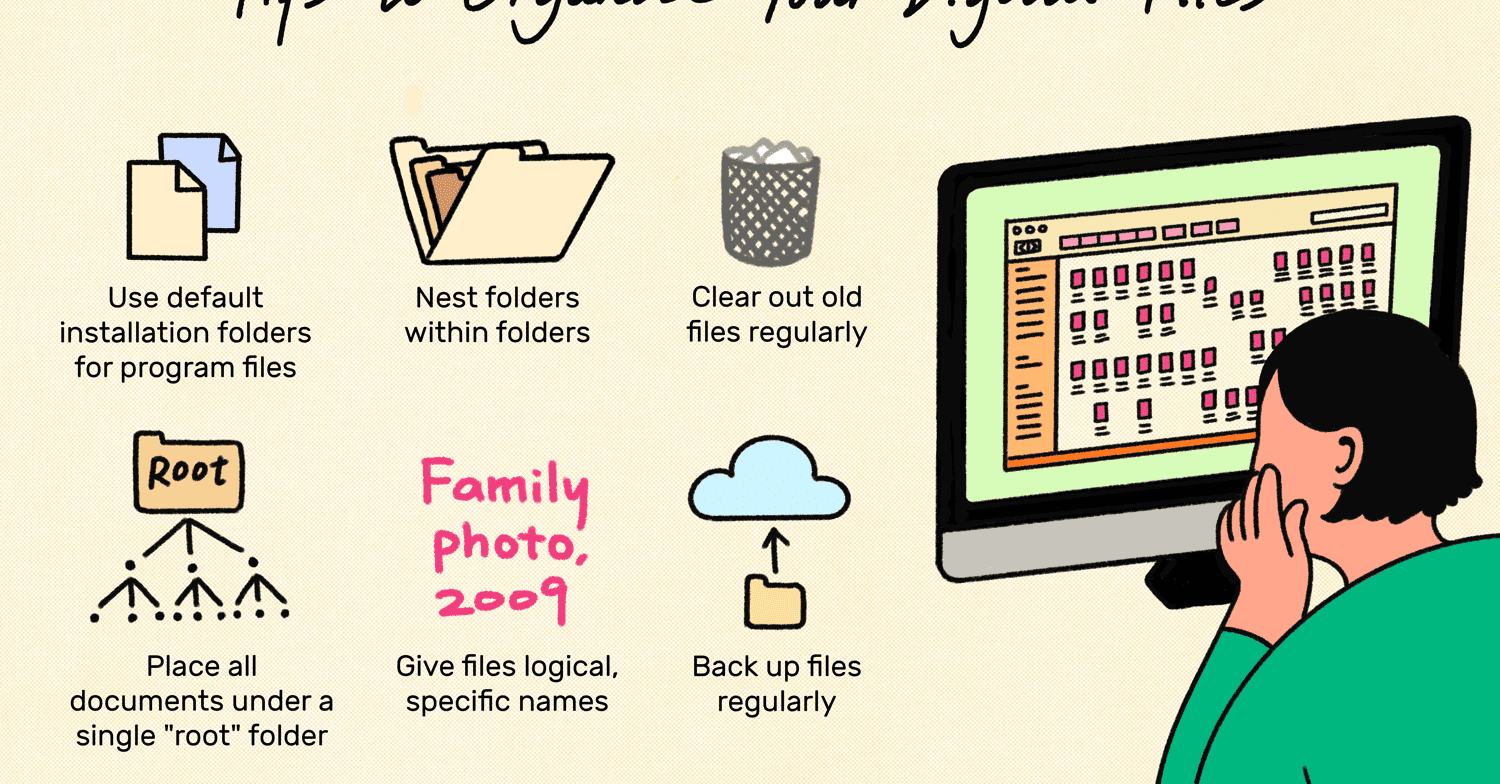Staying organized is more important than ever before, especially as it relates to technology. With the influx of digital files, documents, and data, it’s easy to get lost in the virtual clutter. Whether you’re a student, a professional, or someone managing your personal life, knowing where your files are has become a necessity. Here are some key thoughts on the importance of staying organized in a digital world and provide practical tips to help you master the art of file management.
Why Being Organized Matters
In an era where we’re bombarded with emails, downloads, and cloud storage, it’s no surprise that maintaining an organized digital environment can feel like a Herculean task. However, the benefits of doing so are many. A cluttered digital space not only hampers productivity but also increases stress and frustration. When you can’t find that important presentation or the tax document you need, time is wasted, and deadlines may be missed. Being organized ensures that you can swiftly locate what you need, streamline your workflow, and reduce unnecessary stress.
Folder Structure Is Your Foundation
Imagine your computer’s file system as a well-organized library. Just as you wouldn’t toss books randomly on shelves, you shouldn’t scatter files across your desktop or various folders. Create a clear and intuitive folder structure that reflects different aspects of your life. For instance, under your “Work” folder, you might have subfolders like “Projects,” “Reports,” and “Invoices.” Within these subfolders, break down categories further. For “Projects,” create separate folders for each project, labeled with meaningful names. The key is to design a file tracking structure that makes sense to you and is easy to maintain.
Naming Conventions Matter
While it might be tempting to save files with quirky names or vague labels, this can quickly become a nightmare to navigate. Adopt a consistent naming convention that includes relevant keywords. For instance, if you’re working on a marketing proposal, instead of “Proposal_Final,” try something like “Marketing_Proposal_ClientName_Date.” This approach ensures that even if you forget where the file is, a quick search using the client name or marketing keywords can save the day.
Use the Cloud Wisely
Cloud storage services like Google Drive, Dropbox, and OneDrive offer incredible convenience, but they can also lead to a digital mess if not managed properly. Use cloud storage strategically. Create folders within these services mirroring your local file structure. Regularly assess and delete files you no longer need to prevent unnecessary clutter. Also, make use of features like tagging or labeling files to make searching and sorting easier.
Leverage File Explorer Apps
Most operating systems come equipped with a default file explorer, but there are also third-party options available. These apps offer advanced features such as dual-pane navigation and powerful search functionalities, making it easier to manage and locate files. These apps often provide more flexibility than the default options, allowing you to customize your file management experience.
Note-Taking Apps as Organizational Hubs
Note-taking apps like Evernote or Microsoft OneNote can serve as central hubs for your digital organization. Create notebooks or sections for different projects or areas of your life. These apps allow you to store not only notes but also images, web clippings, and attachments, providing an all-in-one solution for staying organized. With features like synchronization across devices, you can access your organized information wherever you go.
Regular Decluttering Sessions
Just as you periodically clean out your physical spaces, schedule regular digital decluttering sessions. Set aside time each week to review your files, delete duplicates, and organize new additions. This practice prevents digital clutter from spiraling out of control. Remember, decluttering isn’t a one-time event; it’s an ongoing habit that keeps your digital space tidy and efficient.
Backing Up Files
Organizing your files is futile if you’re not backing them up. Hard drives can fail, and accidents happen. Embrace the 3-2-1 rule: Keep three copies of your important files, stored in two different formats, with one copy stored off-site. Cloud storage and external hard drives are excellent options for creating redundant backups. Automated backup solutions can simplify this process,ensuring your files are safe even if the unexpected occurs.
The Future of Digital Organization
As technology evolves, so does the way we organize our digital lives. Machine learning and artificial intelligence are entering the scene, offering automated categorization and predictive organization. Imagine an AI that understands your work patterns and automatically files documents in the appropriate folders. While these developments are promising, the core principles of organization remain unchanged. It’s important to stay updated on emerging tools and strategies to adapt to the evolving landscape of digital organization.

